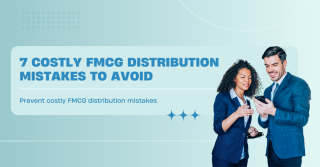Comparing Approaches and Tools for Automating Sales in Different Sectors
_1728473284.png)
In today’s fast-paced business environment, sales automation has become an essential strategy across various sectors. However, the approach and tools used for automation can differ significantly depending on the industry. This blog explores how sales automation is tailored to meet the unique needs of various sectors, highlighting the tools and strategies that drive success.
Understanding Sales Automation
Sales automation refers to the use of technology to streamline and automate repetitive tasks in the sales process. This can include lead generation, customer relationship management (CRM), follow-ups, and reporting. By automating these tasks, sales teams can focus more on building relationships and closing deals.
Sector-Specific Approaches to Sales Automation
a. B2B Technology Sector
Approach: The B2B tech industry often relies on complex solutions that require detailed demos and extensive follow-ups. Here, automation tools focus on nurturing leads through a sophisticated sales funnel.
Tools:
-
CRM Systems: Platforms like Salesforce and HubSpot help manage leads and customer interactions.
-
Email Automation: Tools such as Mailchimp and ActiveCampaign allow for targeted email campaigns based on user behavior.
-
Lead Scoring: Automated scoring systems prioritize leads based on engagement metrics.
b. E-commerce Sector
Approach: E-commerce businesses automate sales primarily to enhance the customer journey and increase conversion rates. The focus is on real-time engagement and personalized marketing.
Tools:
-
E-commerce Platforms: Shopify and WooCommerce offer built-in automation features for inventory management and customer communication.
-
Chatbots: Automated chat solutions like Drift and Zendesk provide instant customer support and guide users through the purchasing process.
-
Abandoned Cart Recovery: Tools such as Klaviyo send automated reminders to customers who leave items in their carts.
c. Retail Sector
Approach: Retail sales automation focuses on optimizing the in-store experience and managing customer relationships effectively.
Tools:
-
Point of Sale (POS) Systems: Modern POS solutions like Square and Lightspeed integrate inventory management and customer data, automating sales tracking.
-
Loyalty Programs: Automated loyalty programs encourage repeat business by rewarding customers for their purchases.
-
Customer Feedback Systems: Tools like SurveyMonkey gather automated feedback to improve the shopping experience.
d. Real Estate Sector
Approach: In real estate, automation helps streamline the listing and buyer process, allowing agents to manage multiple properties and clients efficiently.
Tools:
-
Real Estate CRMs: Platforms like BoomTown and Propertybase are tailored for managing client relationships and property listings.
-
Virtual Tours: Automated virtual tour tools provide potential buyers with an interactive experience, reducing the need for physical showings.
-
Follow-Up Automation: Automated email systems help agents maintain regular contact with leads and past clients.
e. Healthcare Sector
Approach: Sales automation in healthcare is often focused on compliance, relationship management, and education about products or services.
Tools:
-
CRM for Healthcare: Solutions like Salesforce Health Cloud help manage patient relationships and track interactions.
-
Automated Scheduling: Tools such as Zocdoc automate appointment scheduling and reminders for both patients and providers.
-
Educational Campaigns: Automated email campaigns educate healthcare professionals about new products or treatments.
Key Considerations When Choosing Automation Tools
-
Industry Regulations: Compliance with industry-specific regulations (e.g., HIPAA in healthcare) is critical.
-
Integration Capabilities: Ensure that the chosen tools can seamlessly integrate with existing systems.
-
Scalability: Look for tools that can grow with your business and adapt to changing needs.
-
User-Friendly Interfaces: Select platforms that are easy for sales teams to adopt and use effectively.
Conclusion
Sales automation is not a one-size-fits-all solution. Each sector has its unique challenges and requirements, which shape the approaches and tools used. By understanding these differences, businesses can tailor their automation strategies to maximize efficiency and drive sales growth.
One notable tool in this landscape is the Delta Sales App, which has gained traction across various industries for its robust features tailored to meet the needs of sales teams. The Delta Sales App offers real-time data access, streamlined communication, and customizable workflows, making it an invaluable asset for sales professionals. With its user-friendly interface, sales representatives can easily manage leads, track interactions, and automate follow-ups—all from a mobile device.
By integrating the Delta Sales App into their sales processes, businesses can enhance their automation efforts, improve productivity, and foster stronger relationships with customers. As technology continues to evolve, staying informed about the latest tools and best practices in sales automation will be essential for companies across all sectors. By investing in the right automation strategies, such as the Delta Sales App, businesses can elevate their sales processes, improve customer relationships, and ultimately achieve greater success.








